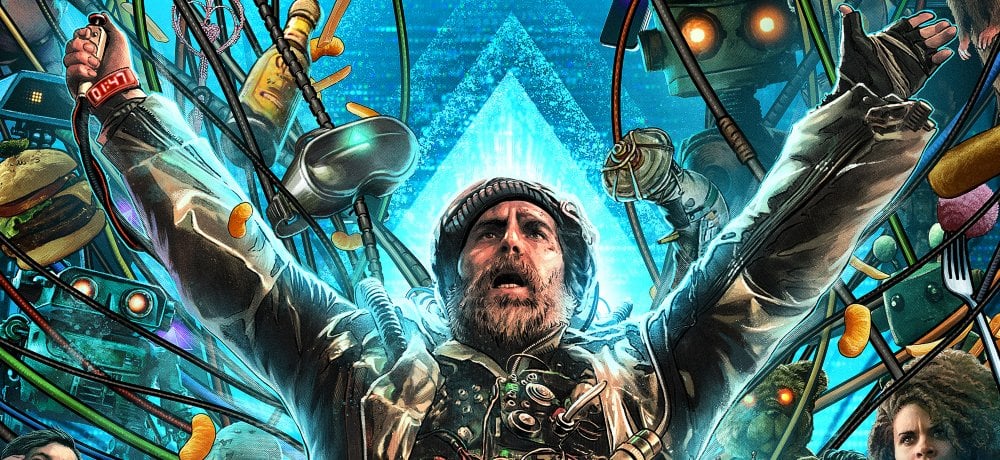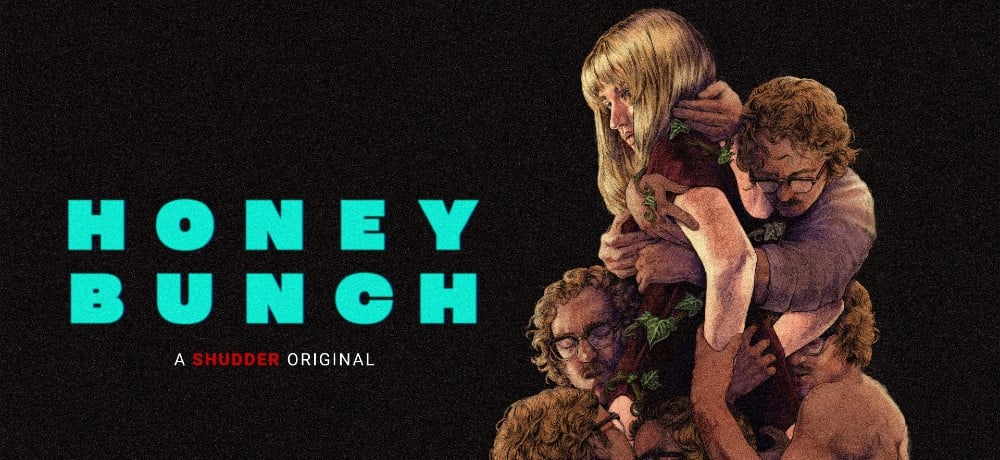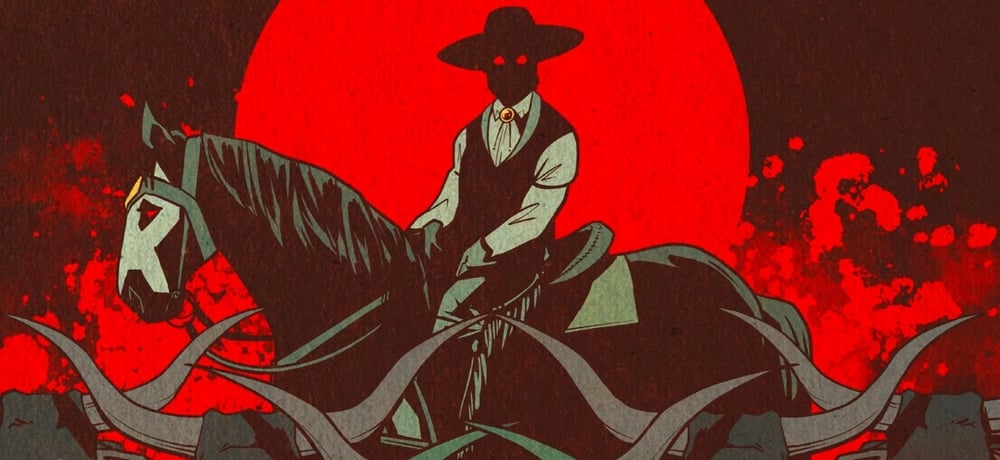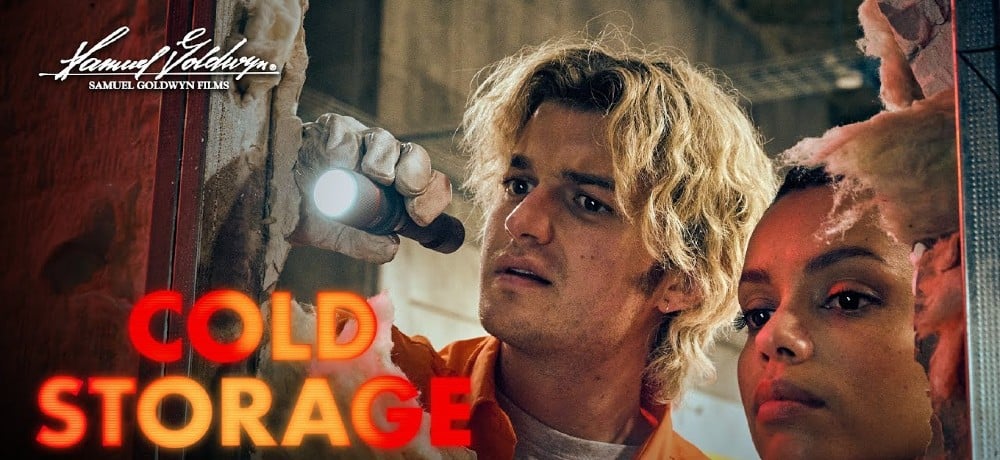





Earlier this week, I spoke with Sarah Wayne Callies and IronE Singleton about their role's in the most recent episode of The Walking Dead, titled "Killer Within". I already published the feature with IronE Singleton and have the interview with Sarah Wayne Callies talking about the major events of the episode:
**Spoiler Warning: Don’t read this interview if you haven’t watched episode 3.04**
Can you talk about the level of emotion on set during the final scenes of the episode? Was it a tough episode to work through with Chandler Riggs, given how close the two of you are?
Sarah Wayne Callies: It was pin drop quiet through that whole scene. We didn't close the set; the whole crew was there and there was a level of concentration and respect and focus from all 80 people who were there. It was remarkable and I think it was probably also significant that the entire cast showed up. I finished the scene and when I came out, there was almost every single member of our cast that had just come to sit and watch and be there.
I think it was important for Chandler that he was surrounded by the people that he would be moving on with. It was difficult, I'll be honest. Chandler and I really didn't talk at all the week that we were shooting that because we couldn't look at each other without losing it. I love that kid.
When we lost Jon, Andy and I were there and we put our arms around Chandler and we said, "you have us". I felt like a bit of a jerk having to reassure this young man that I would be there for him and then sort of taking off five episodes later, but he's in very good hands with that cast and crew. He's a remarkable professional and I know he'll be fine.
I've heard that seeing Lori die is something you thought was necessary since you first joined the series. Did you have any creative input on Lori's line in the script or in the way she died?
Sarah Wayne Callies: Frank [Darabont] and I talked a lot about the necessity of Lori dying and he fought me on it. He said he thought he had a way around it, but we never got a chance to see how that would work out.
Glen and I talked about it a lot, not just what that scene would be like, but how we owned that moment through the first two episodes of the season. Originally, there was a different timeline and we had longer to build to that moment. When it got shortened, we talked about what pieces had to be in place both for Lori, Carl, and for Rick for his development later in this season.
It was an intimate process because Glen lost his mother shortly before they started writing this season. I was very aware that this was a scene that he had written about a woman saying goodbye to her son, having just said goodbye to his mother and heard many of those words. We batted ideas and lines back and forth for about two weeks, and what we shot was a combination of those efforts.
There were a couple of things that I said that weren't on the page, but were a product of sitting with Chandler in a room and trying to say goodbye to him. The great gist of that scene to me was that I got to say everything I wanted to say to him and to the show and cast. People ask me, "Well how does it feel to leave the show?" And I just want to say, "Well watch the episode." You'll know exactly how I feel because it's all there.
Looking back at your experience on the show, what did it mean to you to play this character?
Sarah Wayne Callies: Oh God, it meant the world. I love Lori. She is one of those characters that I think will live in my heart for a long, long, long, long time. I learned so much from her and one of the things that I'm most grateful to the show for is that, when I had my first conversation with Frank, we agreed that we wouldn't do the TV version of this.
Lori was not going to be some big busted beautiful woman in this. We talked about doing the ugliest, dirtiest, most dangerous and sometimes unlikable version of this that we could and then you get the script and he never chickened out.
I remember going to the set the very first day wearing less makeup and my hair looking like a mess and in clothes that were dirty, torn, and a size too big. Frank looked at me and he went, "Perfect." I've never worked on a show before where the producers wouldn't go, "Well I mean come on, at least put on some lipstick and comb your hair. And for crying out loud let's give her a better shirt."
It was so exhilarating to be able to dig deep into the darkness of motherhood and of marriage. It's the best work I've ever done on camera, and that's because the material is so strong. And Andy, Chandler, Jon, Norman, Steven, Lauren, and all of those amazing people that I've had the chance to act with. It's because they made the same commitment and really chose to do the honest version instead of the appealing version.
It's an experience unlike anything I've ever had and I've learned so much from it. I love Lori so much, and her passion, fire, and lack of vanity. I love that woman and I am going to miss her.
Do you think that Lori knows or cares if the baby belongs to Rick or Shane?
Sarah Wayne Callies: To tell in a world where there are no paternity tests, would be if the baby has blue eyes, then the baby is Rick's because both Rick and Carl have blue eyes. Shane has brown eyes and Lori has brown eyes, so with a brown-eyed baby, there's no way to know if that would be either Rick or Shane's.
Can you talk about the final scene being with Maggie and Carl, and not Rick?
Sarah Wayne Callies: In terms of the composition of the characters in that scene, the whole conversation Lori had with Maggie is trying to get her to step up and be a matriarch. She's asking her to do something that only the strongest people would be able to pull off. Maggie's a young woman and she hasn't necessarily come into her own as a woman. Lori has to turn her into a matriarch in the space of two minutes in order to save her baby's life.
Likewise, Carl has to become a man in the space of the same two minutes because there's no one else to put Lori down and there's no one else to be the bearer of her final words. Maggie's clearly on the verge of hysterics, but also having to focus on this C-section. Carl has to take from Lori the last thing that she says and carry those into the future, which is an enormous burden. It's an amazing composition because you take a young woman and a young man and Lori's final act is to turn them into the adults that can do what needs to be done to keep the baby alive.
Looking back at your time on the show, what are some of your favorite memories or scenes?
Sarah Wayne Callies: Some of my favorite scenes with Andy are the ones where one or the other of us doesn't talk much. One of my favorite scenes is at the end of the second season where he tells me Shane is dead. I don't really say anything that entire scene except at the very beginning, but there's a whole dialogue between us that happens non-verbally.
In a way, that's my favorite kind of work to do because it can be different every take and you can play with it. Andy's such a marvelous actor that you just play together and figure that kind of thing out. Right before Lori dies, we look at each other across the field and you get a sense that if they had the time, they would heal and they would make it.
---------
While we usually post early episode reviews, we wanted to give readers a heads up that we may not have one this week to avoid spoilers. Catch up on our recent coverage of The Walking Dead with the following articles: